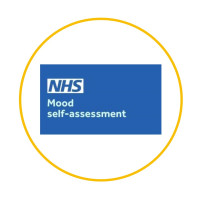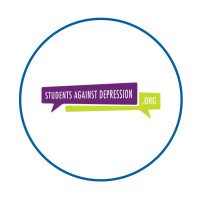- Home
- Our Approach
- Mental Health and Wellbeing
- Feeling low
Feeling low
Lots of people feel low sometimes, but when someone’s depressed those feelings can carry on for months or even longer.
Depression is a mood disorder that makes someone feel down all the time and stops them from being able to enjoy their life. Depression can have a big effect on you, but you’re not alone. There are lots of ways to get support, cope and start to feel better.
Why do I feel depressed?
Lots of things can lead to someone getting depressed. And sometimes you might not know the cause.
Someone might feel depressed after going through bullying, abuse or the death of someone close to them. There could be lots of different things, or someone might get depressed that way after being stressed for a long time.
There’s no right or wrong reason to feel depressed, and it’s always okay to get support if you do.
Signs and symptoms of depression
Depression affects people in different ways, and some people might experience some signs but not others.
Only a doctor or mental health professional can diagnose someone with depression, but if you’re worried then it’s important to get help. Signs of depression can be:
- not enjoying things that you used to
- tiredness or low energy, even when you have rested
- having problems sleeping
- feeling worthless, hopeless or guilty all the time
- changes in how much you’re eating
- feeling sad, hopeless or anxious most of the time
- aches or pains that have no obvious cause
- self-harming or having suicidal thoughts
- not wanting to see people or go out.
Get more information on the symptoms of depression on the NHS website and from YoungMinds.
How to cope with depression?
Whether you’re depressed or feeling low, there are lots of things you can do to cope:
- Keep talking
Whatever’s happening, keep talking to the people trust about it. Remember that you are not alone and there is always someone in school to help you. - Express yourself
Let your feelings out through writing, art or however you feel comfortable. Or you can use the Calm Zone to get ideas. - Make a bedtime routine
Try to go to bed at the same time each night, and take some time before bed to relax and stop doing anything. - Eat healthily and keep active
Gentle exercise and eating healthily can help to improve your mood and feel better over time. - Do something positive
Try and do one small thing each day. You could do something to express yourself, feel good or help someone else. Keep a positive journal or look at some of the apps suggested on our website.
 Charlie Waller Memorial Trust
Charlie Waller Memorial Trust
Awareness, information and resources for those who are depressed.
 NHS Mood Self-Assessment
NHS Mood Self-Assessment
This quiz might help you better understand how you've been feeling and what your options are.
 Students Against Depression
Students Against Depression
Information and resources validated by health professionals alongside tips and advice from students who have experienced it all themselves.
Talk to us
If you would like to talk to someone at school, please come and talk your Head of Year or your Assistant Head of Year or an adult you trust. They will be able to listen and support.


